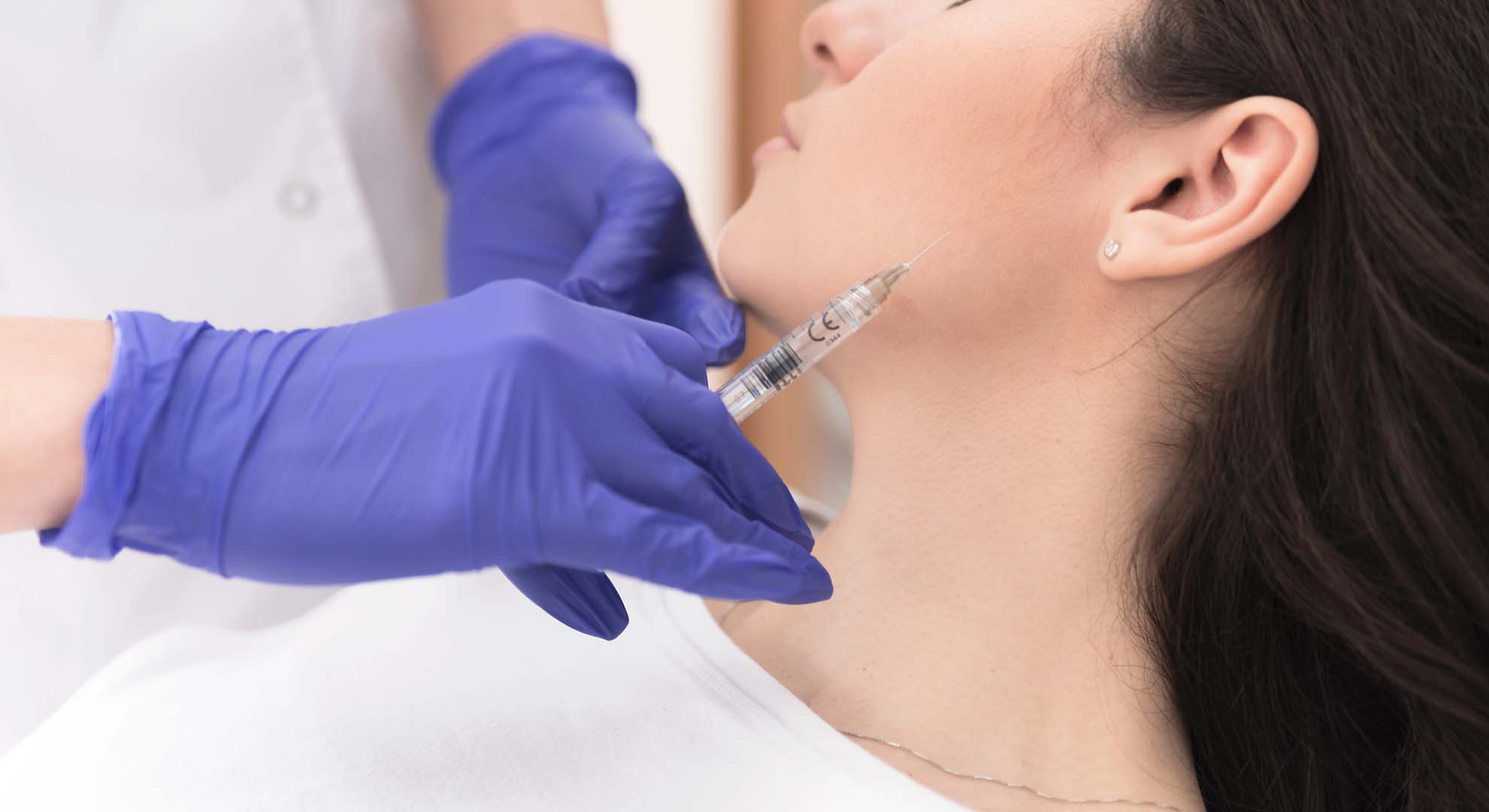
08 Nov Botox Helps TMJ To Help With Clenching
A lot of people might have heard of the TMJ disorder but don’t know what it means. Today, we will discuss the same and even tell you how you can address TMJ in the best way possible. The temporomandibular joint (TMJ) is located right before our ears. They help join the lower part of our jaw to the skull. It is the muscle you feel moving when you open and close your mouth. If you develop a problem with your TMJ or the muscles around it, it’s termed a TMJ Disorder. It could result in dull pain around your joint and may even trigger ear pain, headache, neck stiffness, clicking of the jaw, and more.
The best way to diagnose TMJ disorder is to check out a patient’s medical history along with a physical examination. If you have a TMJ disorder, you may be asked to avoid triggering behaviors or taking any over-the-counter pain relievers to help you with your situation. In today’s blog, we will discuss a few signs and symptoms that suggest you have TMJ disorder. We will also discuss how Botox can help you with your symptoms and whether it’s the right choice.
Jaw Dysfunction
Do you often notice a slight clicking or popping sound when chewing or yawing? Have you ever experienced automatic teeth grinding or jaw clenching? An instance of jaw locking? If yes, you must know that these are all symptoms of TMJ disorder and are most likely to occur in the morning.
Ear Pain
Though most TMJ disorders come with some level of pain in the jaw area, it could also result in some pain around your ears, given their proximity to the joint. If you experience frequent clogged ears, earaches, or tinnitus without other symptoms, it could be from a TMJ disorder and not allergies or ear infections.
Cracked, Broken, or Worn Teeth
If you notice your teeth have started to look cracked worn down or have chips you don’t remember getting from an external injury, it could suggest you have TMJ disorder. Whenever there is an imbalance in the bits, your teeth and jaw muscles stop working in harmony. It can also result in clenching or grinding your teeth, further changing your bite, and leading to additional problems. Other potential symptoms include:
- Dizziness
- Poor sleep
- Lower jaw muscle spasm
- Eye pain
- Back and arm pain
Treating TMJ Using Botox!
If you are experiencing any of these symptoms, starting your treatment as soon as possible is essential, especially if you wish to prevent any severe issues. When you visit our healthcare providers at Iroquois Dental, they can quickly suggest ways to ease your TMJ pain. These include several conservative treatment options like braces, relaxation, physical therapy, oral appliances, and more. However, depending on your case, our professionals might even suggest Botox to help treat TMJ Disorder.
Professionally administered Botox can help relieve the symptoms of TMJ dysfunction by helping you relax your jaw, reduce pain, and allow your mouth to open fully. Botox for TMJ helps paralyze some muscles around your TMJ joints, reducing pain and several other symptoms. Several studies have shown that Botox injections can reduce symptoms like
- Jaw click
- Limited jaw mobility
- Hypermobility
- Hyperactivity
- Pain
However, it would help if you kept in mind that Botox is not a cure for TMJ disorder. Consider it as a temporary treatment that will eventually wear off. This is why all patients must repeat this treatment every few months to keep it effective. While this might sound tedious at first, you must know that injecting Botox for TMJ only takes a few minutes. Once it has been administered, you are good to go.
Several researchers have also used Botox to help address other chronic pain conditions like migraine. When treating TMJ, our professionals will inject Botox into your primary muscles that control the jaw. Keep in mind that using Botox injections for other conditions (like for cosmetic reasons) will not treat TMJ! If you have any questions or want to learn more about Botox for TMJ, feel free to speak with our team today!
Contact Iroquois Dental for More Information.
We understand that Botox for TMJ can be complicated to understand. However, our team has years of training and experience in the field, which helps us deliver only the best service possible. Our primary goal is to provide all patients with personalized, high-quality dental care. If you feel like you have TMJ disorder and would like to find out about all treatment options, call our team at 630-416-0780 for help today!


No Comments